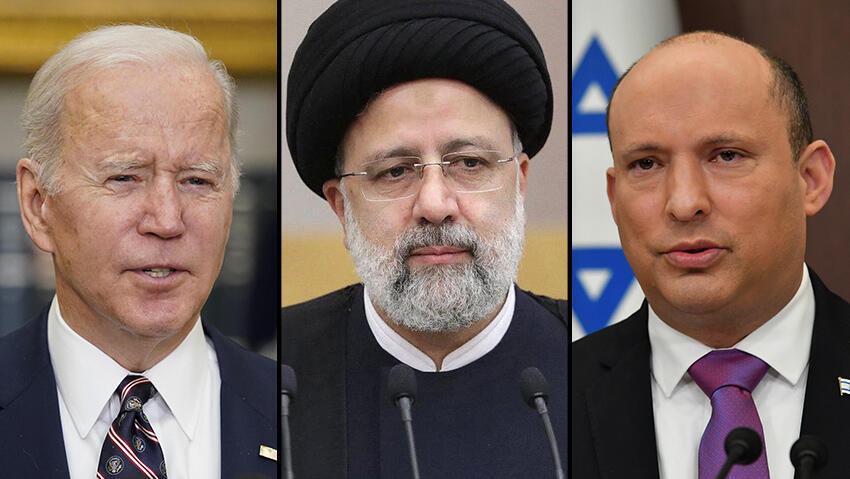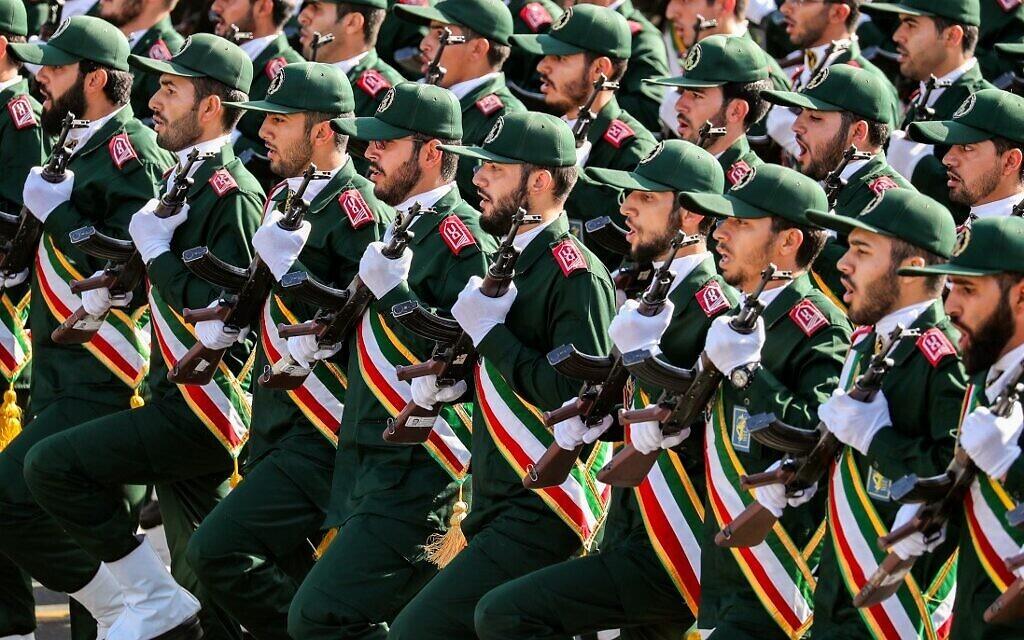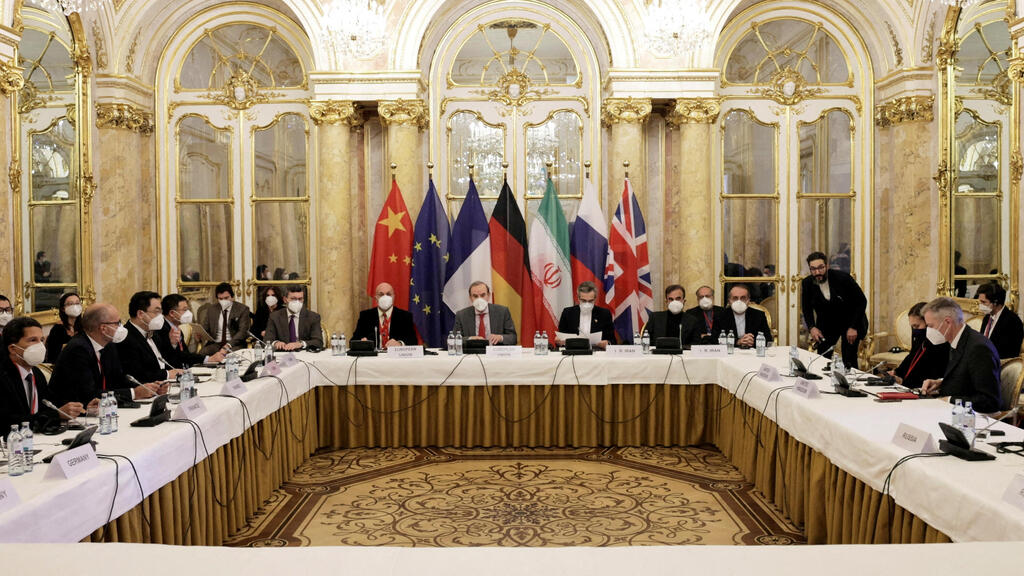Getting your Trinity Audio player ready...
Talks between Iran and the United States may soon fall apart as the two sides appear to be unwilling to compromise on their demands, a senior Israeli official said Tuesday.
The official said U.S. President Joe Biden’s decision not to consent to one of Iran’s main demands and remove the Islamic Republic’s Revolutionary Guard Corps (IRGC) from its foreign terrorist organization blacklist will have dire repercussion vis-à-vis the negotiations meant to revive the tattered 2015 nuclear agreement.
3 View gallery


U.S. President Joe Biden, Iran's President Ebrahim Raisi and Prime Minister Naftali Bennett
(Photo: AP, Yoav Dudkevitch )
Washington had previously mulled whether to reverse former U.S. President Donald Trump's 2019 decision to blacklist the Iranian paramilitary group as part of the ongoing nuclear negotiations - which are now reportedly on hold - in return for Iranian assurances they would reign in the elite force.
While Biden presented a firm stance regarding the decision to keep the IRGC - which Washington accuses of carrying out a global terrorist campaign - on America's notorious terror list, there are those who think a compromise will eventually be reached, and negotiations will be continued.
"The talks did not collapse completely, but have been frozen," an Israeli official said Monday.
"The agreement is ready, but the controversy surrounding America’s terror list, coupled with the [nuclear watchdog’s] investigation of Teheran, have all resulted in a Mexican standoff. Each side is waiting for the other to break," he said.
Meanwhile, National Security Adviser Dr. Eyal Hulata is currently in Washington, where he is holding talks with his American counterparts as part of Israel’s efforts to reach maximum coordination with the United States in case negotiations collapse and the Iranians start violating past agreements.
Several Israeli officials have previously said that Jerusalem will keep regarding the IRGC as a terrorist organization even if the U.S. removes the label from the powerful paramilitary group.
3 View gallery


Members of Iran’s Islamic Revolutionary Guard Corps (IRGC) march during the annual military parade
(Photo: AFP)
Foreign Minister Yair Lapid said that "even if the U.S. government removes the IRGC from the terrorist organization list, as far as Israel is concerned, both on the practical and military level, it is still a terrorist organization, and it will be treated as such."
Lapid’s hardline stance was echoed by Defense Minister Benny Gantz, who said that the IRGC is "a terror organization and should be viewed as such,” and that Iran is “more than a regional problem,” labeling it as a “global issue and an existential threat to Israel”.


